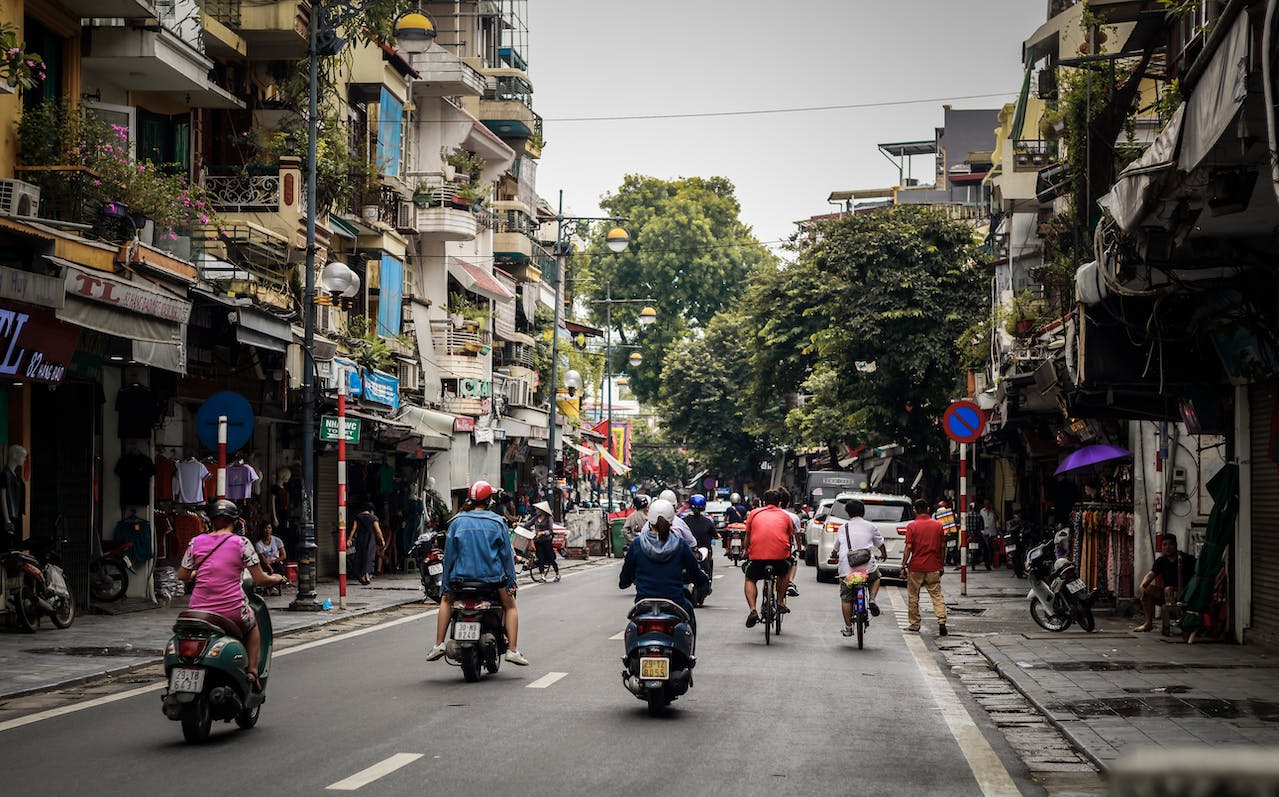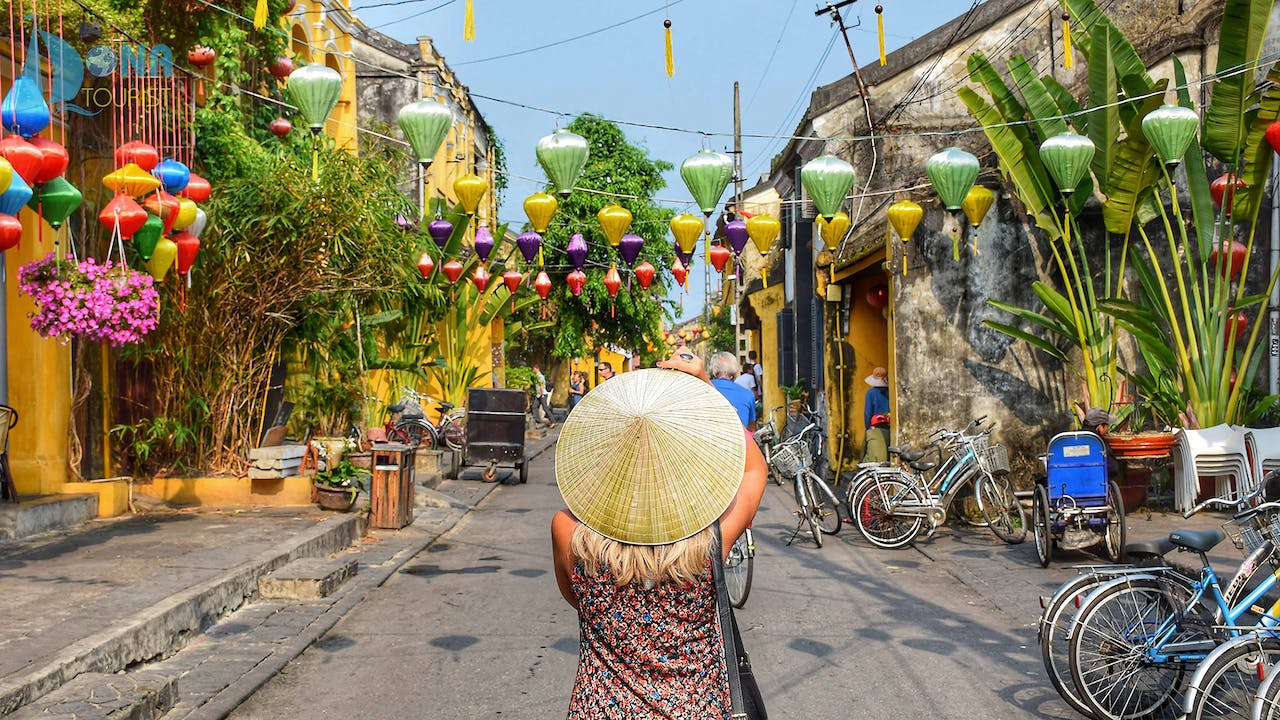Vietnam, with its stunning landscapes, rich culture, and delicious cuisine, is a captivating destination for travelers. However, exploring this vibrant country can be a bit overwhelming if you’re not prepared. To make your journey through Vietnam as smooth and enjoyable as possible, it’s essential to arm yourself with some handy travel tips. From navigating the bustling streets of Hanoi to savoring authentic pho, these tips will help you survive and thrive during your Vietnam adventure.
1. Visa Requirements and Entry Regulations
Before you even set foot in Vietnam, ensure you have the proper visa documentation. Many travelers need a visa to enter Vietnam, so research the requirements in advance. You can typically apply for a tourist visa through the Vietnamese embassy or consulate in your home country, or you may be eligible for an e-visa or visa on arrival. Double-check the latest entry regulations and fees as they can change.
2. Best Time to Visit
Vietnam experiences a range of climates, so the best time to visit depends on your preferred weather conditions and the activities you plan to do. The cool, dry season from November to April is a popular time for travelers. However, be prepared for higher prices and larger crowds. If you want to avoid the crowds and are comfortable with warmer, more humid weather, the shoulder seasons are ideal.
3. Learn Basic Vietnamese Phrases
While English is increasingly spoken in major cities and tourist areas, it’s immensely helpful to learn some basic Vietnamese phrases. Locals will appreciate your efforts, and it can enhance your travel experience. Learn greetings, numbers, and essential phrases for ordering food and asking for directions. A few simple words can go a long way in Vietnam.
4. Bargaining Skills
Bargaining is an essential part of shopping in Vietnam, especially in local markets. Vendors often expect haggling, so don’t be shy about negotiating prices. Be polite and firm, and remember that a fair price is one that both you and the seller are comfortable with. It’s all part of the fun of shopping in Vietnam.
5. Respect Local Customs
Vietnam is a country steeped in tradition, and respecting local customs is vital. When visiting temples or pagodas, dress modestly and remove your shoes before entering. It’s customary to cover your shoulders and knees in sacred places. Be aware of cultural sensitivities and traditions to ensure you’re respectful to the local people.
6. Street Food Etiquette
Vietnam is famous for its delicious street food. When indulging in local culinary delights, observe some street food etiquette. It’s common to sit on small plastic stools while enjoying your meal. Use chopsticks and avoid sticking them upright in your food, as this is considered impolite. Additionally, it’s customary to share dishes, so embrace communal dining when you can.
7. Stay Hydrated and Eat Local Food
Vietnam’s cuisine is diverse and flavorsome. Don’t hesitate to try street food and dine at local restaurants. However, be mindful of food hygiene, as street food can sometimes lead to stomach issues. Stick to busy stalls with a high turnover of customers, and ensure food is cooked thoroughly. Stay hydrated by drinking bottled water and fresh fruit juices, as tap water is not always safe to drink.
8. Plan Your Accommodation
Vietnam offers a range of accommodation options, from luxury hotels to hostels and homestays. Before arriving, research and book your accommodations in advance, especially during peak travel seasons. Popular tourist destinations can fill up quickly, so having a place to stay in mind is essential to avoid last-minute stress.
9. Transport Tips
Getting around Vietnam can be an adventure in itself. Here are some transport tips to help you navigate the country effectively:
- Motorbike Rentals: Motorbike rentals are a popular way to explore Vietnam, especially in cities like Hanoi and Ho Chi Minh City. If you choose this option, always wear a helmet, drive cautiously, and make sure you have an International Driving Permit.
- Public Transportation: Buses and trains are affordable and convenient ways to travel between cities. Sleeper buses and trains are common for overnight journeys.
- Domestic Flights: If you’re covering long distances, consider domestic flights in Vietnam to save time. Vietnam has several domestic airlines offering budget-friendly fares.
- Taxis: Use reputable taxi companies and insist on using the meter. Alternatively, ridesharing apps like Grab are widely used in Vietnam and can provide more transparency in terms of pricing.

10. Carry Cash and Know Local Currency
While credit cards are increasingly accepted in urban areas, it’s a good idea to carry cash for smaller transactions and in more remote regions. The currency in Vietnam is the Vietnamese Dong (VND), and ATMs are widely available in cities and tourist areas. Be aware of currency exchange rates and avoid using street money changers.
11. Health Precautions
Vietnam is a tropical country, and you may need vaccinations and medications, depending on the regions you plan to visit. Consult your healthcare provider before your trip and consider vaccinations for diseases like hepatitis A, typhoid, and tetanus. Don’t forget to bring mosquito repellent and sunscreen to protect yourself from bites and sunburn.
12. Be Wary of Scams
While Vietnam is a safe country for travelers, it’s wise to be cautious of scams and overcharging. Common scams include inflated prices for goods and services, rigged taxi meters, and tour operators offering subpar services. Research and book through reputable agencies, and always confirm prices and services beforehand.
13. Stay Safe on the Streets
The bustling streets of Vietnam can be a challenge to navigate. Traffic in cities like Hanoi and Ho Chi Minh City can be chaotic, with a sea of motorbikes. Always exercise caution when crossing streets, walk at a steady pace, and make eye contact with drivers to let them know your intentions. Traffic may not stop for you, but it will adjust its course if it knows where you’re headed.
14. Internet and SIM Cards
Vietnam offers good connectivity, with access to Wi-Fi in many hotels and cafes. However, for seamless communication and internet access, consider purchasing a local SIM card with data, which is affordable and widely available.
15. Explore Local Culture
To truly immerse yourself in the local culture, take part in festivals, events, and traditional activities. Attend a water puppet show, celebrate Tet (Vietnamese New Year), or join a cooking class to learn more about the country’s customs and traditions.
16. Manage Your Travel Itinerary
Vietnam is a diverse country with a wide range of attractions. Plan your itinerary well to make the most of your visit. Explore the bustling cities of Hanoi and Ho Chi Minh City, the serene countryside of Sapa, the stunning Halong Bay, and the historic sites in Hue. Don’t rush, and allow time for spontaneous discoveries along the way.
17. Be Open to Experiences
Finally, the most important travel tip for surviving and thriving in Vietnam is to be open to new experiences. Embrace the unfamiliar, savor the local cuisine, and engage with the warm and friendly Vietnamese people. Traveling in Vietnam is an opportunity to learn, grow, and create unforgettable memories.
In conclusion, Vietnam is a captivating country with a rich history, stunning natural beauty, and delicious cuisine. By following these travel tips, you can make the most of your journey, ensuring that you not only survive but thrive in this remarkable destination. Whether you’re exploring bustling cities or tranquil countryside, Vietnam is a place of adventure, culture, and discovery, and your experience will be all the more rewarding with these tips in mind.
Featured Image & Source: Vietnam Travel Guide Tips | Photo by Thanh Hoa Tran
Read more Vietnam travel articles.

